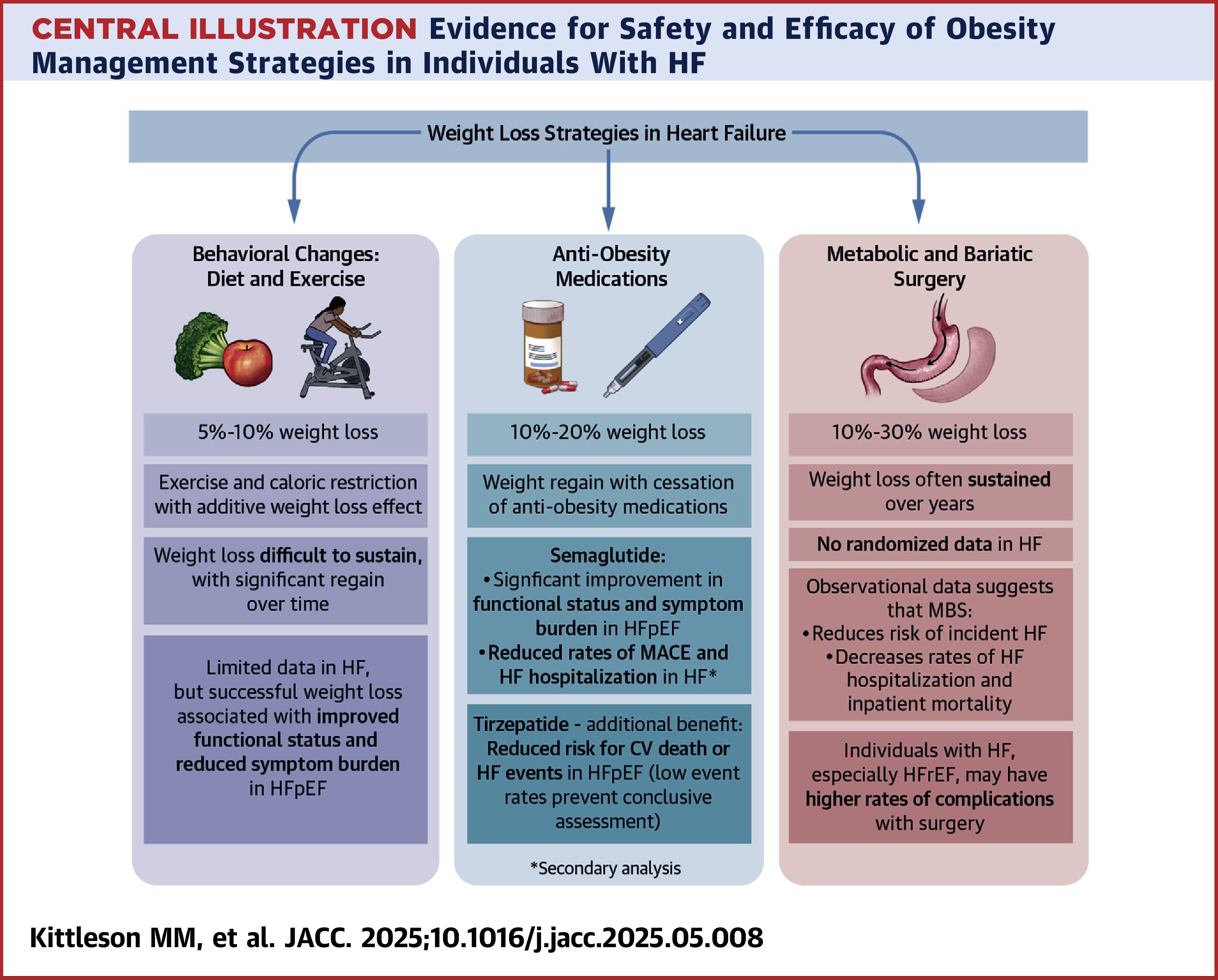New ACC Scientific Statement Addresses Management of Obesity in HF
A new ACC Scientific Statement addresses the management of obesity in adults with heart failure (HF), with a specific focus on those with stage 2 HF with preserved ejection fraction (HFpEF). It is the first in a new series of clinical guidance from the College aimed at informing clinicians about areas where evidence is new and evolving or where sufficient data are more limited.
"Given emerging evidence of the benefits of semaglutide and tirzepatide in individuals with HFpEF and obesity in concert with healthy behavioral interventions, clinicians should be aware of optimal diagnosis, risk assessment, and management of obesity in individuals with HF," write the authors.
The statement, led by Writing Committee Chair Michelle M. Kittleson, MD, PHD, FACC, provides an overview of the latest evidence and current challenges in HF management and reviews the existing processes for diagnosis, evaluation and risk assessment of obesity in HF. It also includes a series of consensus recommendations regarding the epidemiology of obesity in HF and the diagnosis of obesity, risk assessment, and evaluation of obesity and HF.
Recommendations for specific lifestyle, behavioral, pharmacological and invasive interventions for the management of obesity in HF are also included. Of note, the Central Illustration summarizes current evidence surrounding the safety and efficacy of weight loss strategies including behavioral changes like diet and exercise, anti-obesity medications (AOM) like semaglutide and tirzepatide, and metabolic and bariatric surgery.

In addition to clinical guidance, the statement also includes a closer look at evidence gaps and opportunities for further research. Among the gaps outlined:
- What intentional weight loss strategy offers the greatest HF benefit?
- Are the benefits of semaglutide and tirzepatide in obesity-related HF attributable to weight loss or another mechanism distinct to the action of these therapies?
- What is the role of a cardiometabolic clinic in HF care?
- Will AOMs improve outcomes in individuals with HF with reduced ejection fraction (HFrEF)?
Kittleson and colleagues also highlight the provision of equitable access as "an essential future priority," noting the need for "policies and systems to ensure that individuals with adverse [social determinants of health] have access to evidence-based AOM, particularly so that we can avoid the unintended consequence of further exacerbating health inequities."
Clinical Topics: Heart Failure and Cardiomyopathies, Acute Heart Failure
Keywords: Weight Loss, Social Determinants of Health, Heart Failure, Obesity
< Back to Listings
